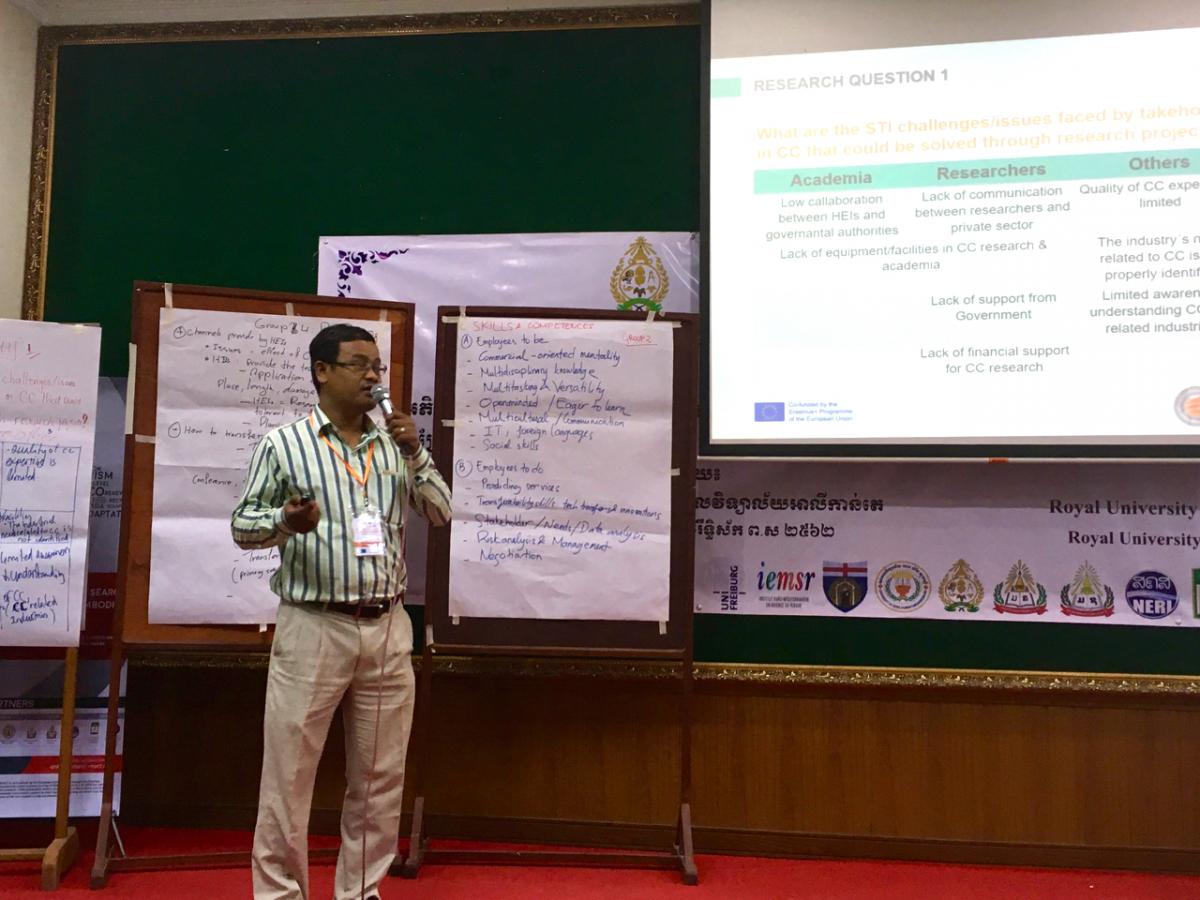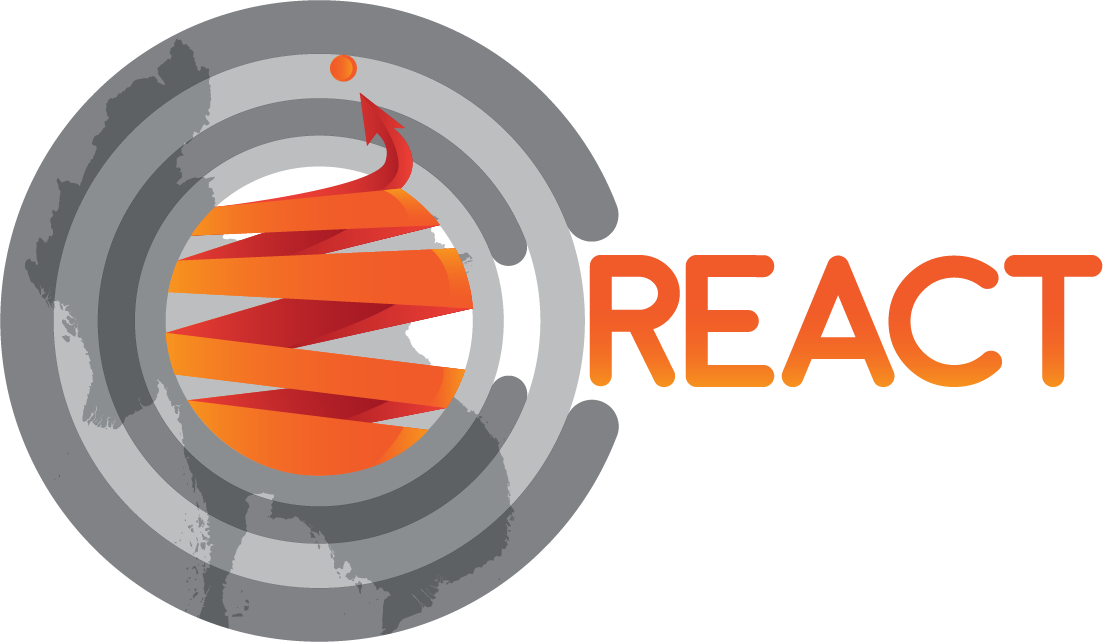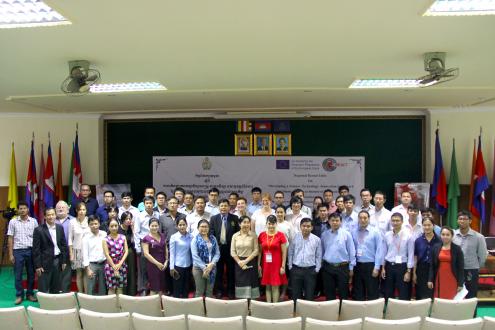On July 13th, the REACT project organized the second REACT Regional Round Table titled “Developing a Science ‐ Technology ‐ Innovation framework in Climate Change as booster of the economy”. It too place at the Royal University of Agriculture in Phnom Penh, Cambodia, and included over 30 participants from Higher Education Institutions in Laos, Cambodia and Vietnam, as well as local policy makers and students.
The aim of the REACT regional round tables is to foster a mutual acquaintances and discussion between Higher Education Institutions and relevant stakeholders in order to
- Raise awareness on the improvements achieved by the HEI thanks to the international cooperation projects
- Better understanding of the labour market and socioeconomic environment needs and trends
It is hoped that as a result of this nascent relationship, HEIs and stakeholders will work together to develop jointly high quality R&TD projects and Master / Postgraduate study programmes in Climate Change and related topics having both National and Regional relevance.
Following a keynote speech “Environmental Crises Raising Expectations of Science and Technology” by Dr. Eng. Matteo Colli from the University of Genoa, the 2nd Regional Round Table focused on the development of a “Science ‐ Technology ‐ Innovation” framework in Climate Change as booster of the whole national economy. Participants were distributed into smaller groups in order to discuss the following issues:

- What skills and competences does the industry need from graduates/employees/potential employees in Climate Change?
- How can stakeholders contribute to Climate Change education?
- What are the STI challenges/issues faced by stakeholders in Climate Change that could be solved through research projects?
- What channels/measures could be provided by HEIs aiming to find/give potential solutions to these issues, and how could they transfer the results to the industry and policy makers?

